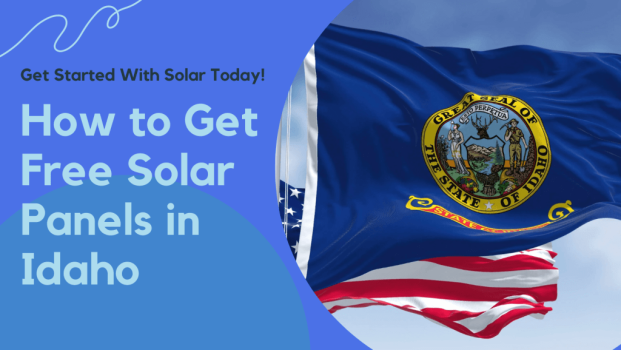In the scenic landscapes of Idaho, where the sun generously bestows its golden rays, the allure of harnessing this renewable energy through solar panels continues to captivate homeowners. You may have heard whispers of ‘free’ solar panels promising a utopia of clean energy with no upfront costs—a tempting offer, indeed. However, it’s crucial to peel back the layers of this enticing proposition to uncover the truth behind it.
The concept of ‘free’ solar panels often stems from tantalizing marketing claims that can lead to misunderstandings. As savvy Idahoans seeking to make informed decisions, it’s essential to recognize the realities of such deals. They typically involve solar leases or power purchase agreements (PPAs), where ‘free’ actually translates to zero initial investment, but not an outright gift.
I invite you to delve deeper and unravel the intricacies of solar installations and the genuine pathways to savings they may provide. By advancing your knowledge, you can make educated choices about solar energy investments that align with your financial and environmental goals. Let’s embark on this enlightening journey together to demystify the notion of ‘free’ solar panels and explore how you can truly capitalize on Idaho’s abundant sunshine.
Are “Free Solar Panels” Really Free in Idaho?
The term ‘free solar panels’ often catches the eye of many homeowners looking to reduce their energy costs and environmental footprint. However, it’s important to understand what this phrase actually means in the solar industry, especially in places like Idaho, where solar energy is becoming increasingly popular.
When you hear ‘free solar panels,’ what’s typically being offered is a solar lease or a Power Purchase Agreement (PPA). These are financial arrangements where a solar company installs panels on your home at no upfront cost to you. While this sounds like a fantastic deal at first glance, you need to be aware that it involves a long-term commitment to pay a monthly fee.
With a solar lease, you’re renting the solar energy system from the company. You pay a fixed monthly rent, which is usually lower than your traditional electric bill, in exchange for the energy the panels produce. This can lead to immediate savings on your electricity costs without the large initial investment of purchasing a system outright.
A PPA is slightly different. Instead of paying rent for the equipment, you agree to purchase the power generated by the solar panels at a set per-kilowatt-hour rate. This rate is often lower than what you would pay your utility provider, which can make it an attractive option. However, the rate can be subject to escalation over time, depending on the terms of your agreement.
Here are some key points to consider if you’re exploring the option of ‘free solar panels’ in Idaho:
- Long-Term Agreement: Both leases and PPAs typically require a commitment of 20 to 25 years.
- No Upfront Costs: You can take advantage of solar power without paying for the system installation upfront.
- Monthly Payments: You’ll be obligated to make monthly payments throughout the term of the lease or PPA.
- Savings: Your monthly energy costs could be lower, depending on the terms of the lease or PPA and your energy usage.
- Maintenance: The solar company usually handles maintenance and repairs, as they own the equipment.
- Transition at End of Term: At the end of the agreement, you may have the option to extend the lease, buy the system, or have it removed.
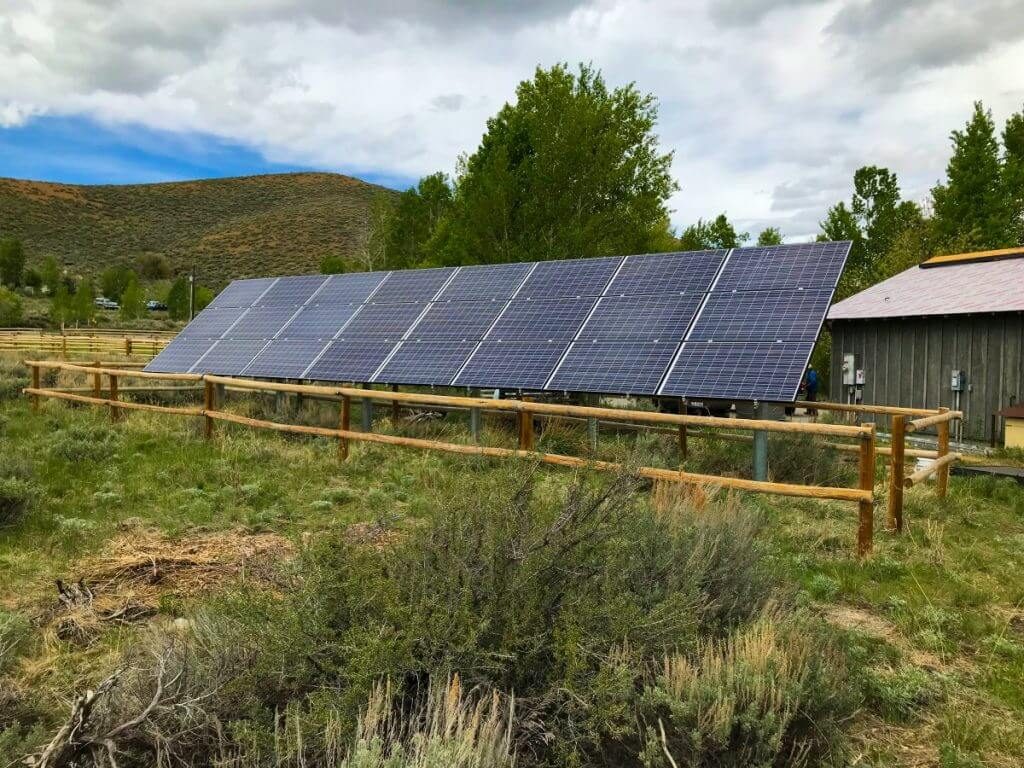
While these programs can offer access to solar energy with little to no initial cost, they also mean that you won’t own the solar panels. Ownership has its advantages, such as potential increases in property value and eligibility for tax credits or incentives. Before deciding on a lease or PPA, it’s essential to evaluate your financial goals, energy needs, and long-term plans for your property. Consulting with a solar industry professional can provide you with tailored advice that takes into account the unique aspects of your situation in Idaho.
Solar Leases
Solar leases are a financing option that allows homeowners in Idaho to utilize solar energy without having to purchase the actual solar panel system. Here’s a simplified explanation of how they work and some key points to consider regarding their benefits, drawbacks, long-term cost implications, and potential savings.
When you enter a solar lease, you agree to have solar panels installed on your property. Instead of buying the system, you lease it from a solar company for a set period, typically 20 to 25 years. You pay a fixed monthly fee for the use of the system, which generates electricity for your home.
Benefits
- No or low upfront costs: Solar leases can start with little to no upfront investment, making solar accessible to more people.
- Stable energy costs: Leasing a solar system can lock in electricity rates, protecting you from rising energy costs.
- Maintenance: Maintenance and repairs are often included in the lease, so homeowners aren’t responsible for additional costs.
Drawbacks
- No solar tax credits: In a lease agreement, the solar company that owns the system claims any available tax credits or incentives, not the homeowner.
- Fixed payments: Regardless of how much energy the system produces, you’ll still pay the agreed-upon lease payment.
- Long-term commitment: Solar leases are typically long-term contracts, and breaking them can be costly.
Regarding long-term costs and savings, here’s what Idaho homeowners should weigh:
Long-Term Costs
- A solar lease can potentially increase over time with a “lease escalator,” which bumps up payments by a fixed rate annually.
- Over the lifespan of the lease, you might end up paying more than you would have if you had purchased the system outright.
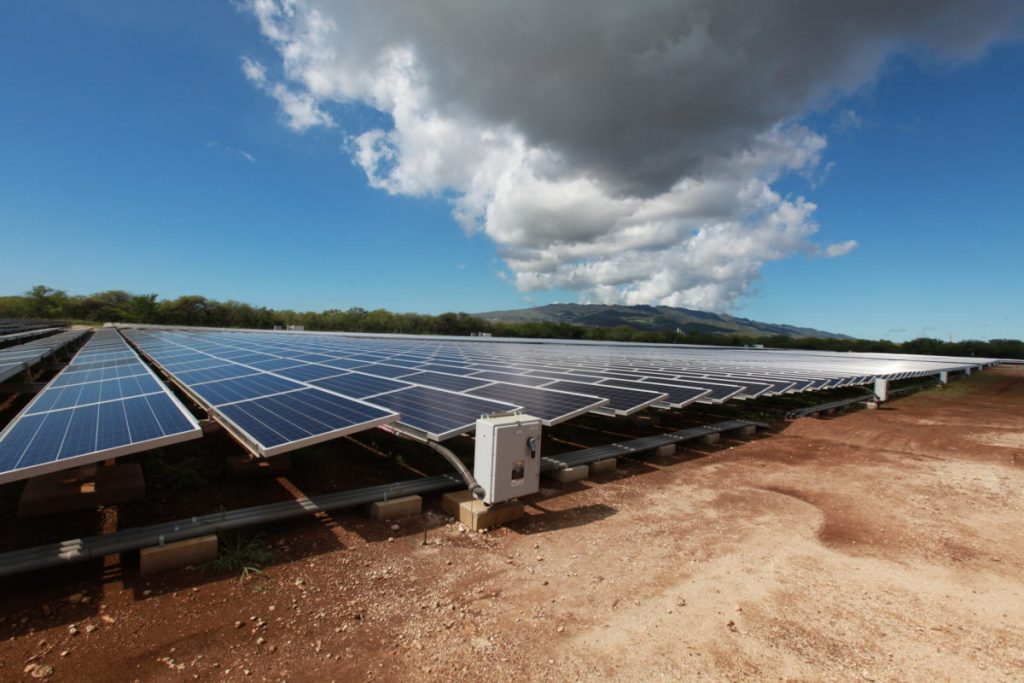
Potential Savings
- Immediate savings on electricity bills since the lease payments are often less than your current electricity expenses.
- Protection from increasing utility rates, assuming your lease payments do not increase significantly over time.
When considering a solar lease in Idaho, it’s important to think through both the immediate benefits and the long-term implications. While you can save on utility bills without a large initial investment, the ownership advantages and larger financial incentives will go to the provider. Homeowners looking for a short-term solution to reduce their energy bills may find solar leases attractive, but if you’re aiming for greater autonomy and potential profits from your investment in the long term, it might be wise to consider alternative financing options such as solar loans or cash purchases. Always carefully read the terms of your lease, and possibly consult a financial advisor to ensure it aligns with your financial goals.
PPA Agreements
In the context of solar energy, a Power Purchase Agreement (PPA) is a financial arrangement in which a solar service provider installs, owns, and maintains a solar panel system on a homeowner’s property, and the homeowner agrees to purchase the power generated by the system at a set price, which is typically lower than the local utility’s electricity rates. This agreement typically lasts for 20 to 25 years, and the solar company is responsible for the system’s operation and maintenance.
For homeowners in Idaho, considering a PPA has its benefits
- No Upfront Costs: One of the main advantages is that you can go solar without paying the upfront cost of installing solar panels.
- Potential Savings: Homeowners can save money on their electric bill, as they often lock in lower electricity rates than those of their utility company.
- Hands-Off Maintenance: Since the solar provider owns the system, they are responsible for any repairs and maintenance, which can provide peace of mind.
However, there are a few downsides to PPAs that you should consider
- Lower Savings Compared to Ownership: While PPAs offer a lower energy rate, the savings are typically not as significant as if you owned the solar panels outright.
- Property Sale Complications: Selling your home can be more complicated, as the PPA is tied to the property and the new homeowner must agree to take over the PPA contract.
- Less Control: Since the solar provider owns the panels, you have less control over the solar system, and any decisions about the panels or contract changes must go through them.
When comparing PPAs to buying or leasing solar panels
- Buying: Purchasing solar panels gives you the advantage of higher long-term savings because you benefit from all the electricity savings, tax credits, and potential increases in home value. But these benefits come with the drawback of significant upfront costs and the responsibility for system maintenance.
- Leasing: Leasing is similar to a PPA in that there are no upfront costs and maintenance is covered by the lessor, but instead of paying for the power produced, you pay a fixed monthly lease payment. This might save you less money over time compared to a PPA where your rate per kWh could be lower than the utility rate.
PPAs can be an attractive option for Idaho homeowners who want to go solar without the initial investment and prefer to have someone else handle maintenance. That said, the decision between a PPA, leasing, or buying should be tailored to your financial goals, long-term residence plans, and desire for control over your home energy system.
Zero-down Solar Loans
Zero-down solar loans in Idaho are a financial product designed to make it easier for homeowners to switch to solar energy without the large upfront costs usually associated with purchasing and installing solar panels. Essentially, with a zero-down solar loan, you can finance the entire cost of your solar energy system and start generating your power right away, with no initial payment. As you pay back the loan over time, you build equity in your solar setup.
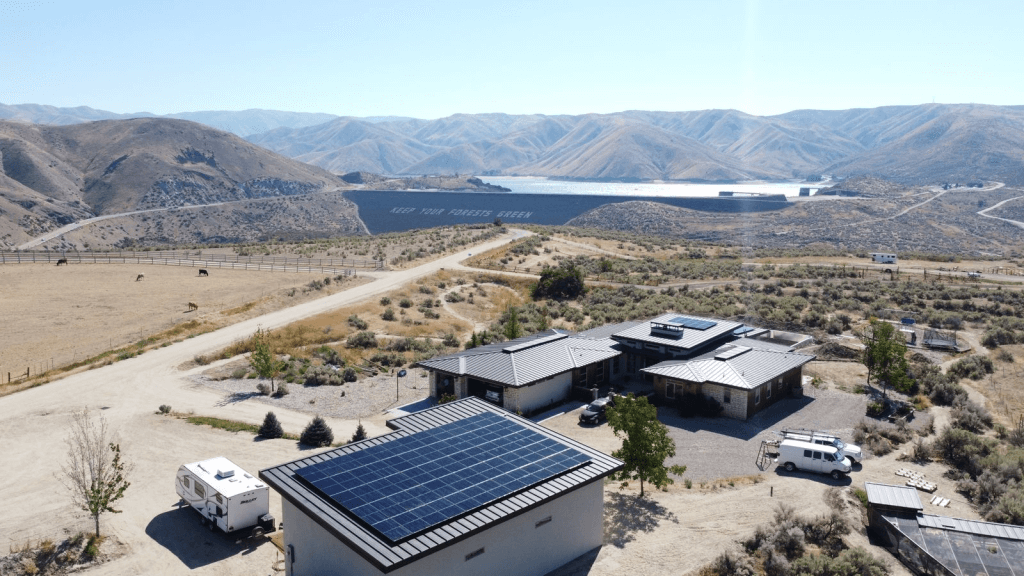
Benefits of zero-down solar loans include:
- No Initial Costs: You can begin your solar project without having to save for a large upfront payment.
- Ownership: Unlike leasing options, with a loan, you own your solar system, which can increase the value of your property.
- Fixed Payments: Loans typically come with fixed payments, making budgeting easier.
- Tax Benefits: As the system owner, you’re eligible for federal tax credits and possibly state incentives.
- Energy Savings: Eventually, the energy savings on your electric bill can surpass the loan payment amount, leading to net savings.
However, potential risks associated with zero-down solar loans should also be considered:
- Long-Term Commitment: Solar loans can be a long-term financial commitment of 10-20 years, and circumstances may change.
- Interest Payments: Over time, the cost of interest can add a significant amount to the overall cost of your system.
- Maintenance Responsibility: As the owner, maintenance and repair responsibilities fall on you, though the panel warranty may cover some issues.
- Home Sale Complications: If you sell your home, the loan may need to be paid off or transferred to the new owner, which can complicate the sale process.
For Idaho homeowners, using a zero-down solar loan means avoiding the hefty initial investment for solar panels while reaping the benefits of sustainable energy and potentially saving on electricity costs. As with any financial decision, it’s crucial to assess your individual circumstances, ability to maintain consistent loan payments, and the overall benefits of having a solar energy system in place. Consulting with a financial advisor or solar professional can provide deeper insights tailored to your situation.
Can You Get Free Solar Panels From the Government?
The U.S. government does not offer completely free solar panels. However, homeowners and businesses in Idaho can take advantage of federal tax incentives and local programs that significantly reduce the cost of solar panel installation.
Here are some ways you might offset the cost of solar panels through government initiatives:
Federal Solar Investment Tax Credit (ITC)
This is a federal tax credit for solar energy systems that applies to both residential and commercial properties. For systems installed in 2023, the credit allows you to deduct 30% of the cost of installing a solar energy system from your federal taxes.
State and Local Incentives
Idaho might have additional state or local incentives for solar panel installation. These vary by location and time, so it’s essential to check with local agencies or solar energy companies in Idaho for the latest information.
To benefit from these programs, you typically need to meet certain requirements, such as owning the property where you’re installing the solar panels and ensuring the solar system meets specific performance and quality standards.
Application processes for these incentives usually involve:
- Installing a solar energy system through a certified contractor.
- Applying for the Federal ITC when you file your annual federal taxes, using IRS Form 5695.
- Researching local incentives for additional savings and following the specific application instructions provided by those programs.
Remember to keep your receipts and any other documentation related to the purchase and installation of your solar panels, as they will be required when applying for these incentives.
For the most up-to-date information and comprehensive guidance, I recommend contacting a local solar installer who will be familiar with Idaho’s solar incentives and can help streamline the process for you. It might also be wise to consult a tax professional to fully understand how to claim the ITC and any other applicable incentives.
Will “Free” Solar Panels Save You Money?
When looking closely at the ‘free’ solar panel offerings, it’s important for homeowners in Idaho to understand that savings can indeed be realized; however, this often comes with certain considerations to keep in mind.
Firstly, ‘free’ solar panel programs typically involve a power purchase agreement (PPA) or a solar lease. In a PPA, you agree to allow a company to install solar panels on your roof, and you purchase the power they produce at a set rate, which is often lower than the local utility’s price. Similarly, with a solar lease, you pay a fixed monthly rent instead of buying the electricity. While these options can lower your monthly bill without the upfront cost of purchasing solar panels, they do come with long-term contracts that can span 20 to 25 years.
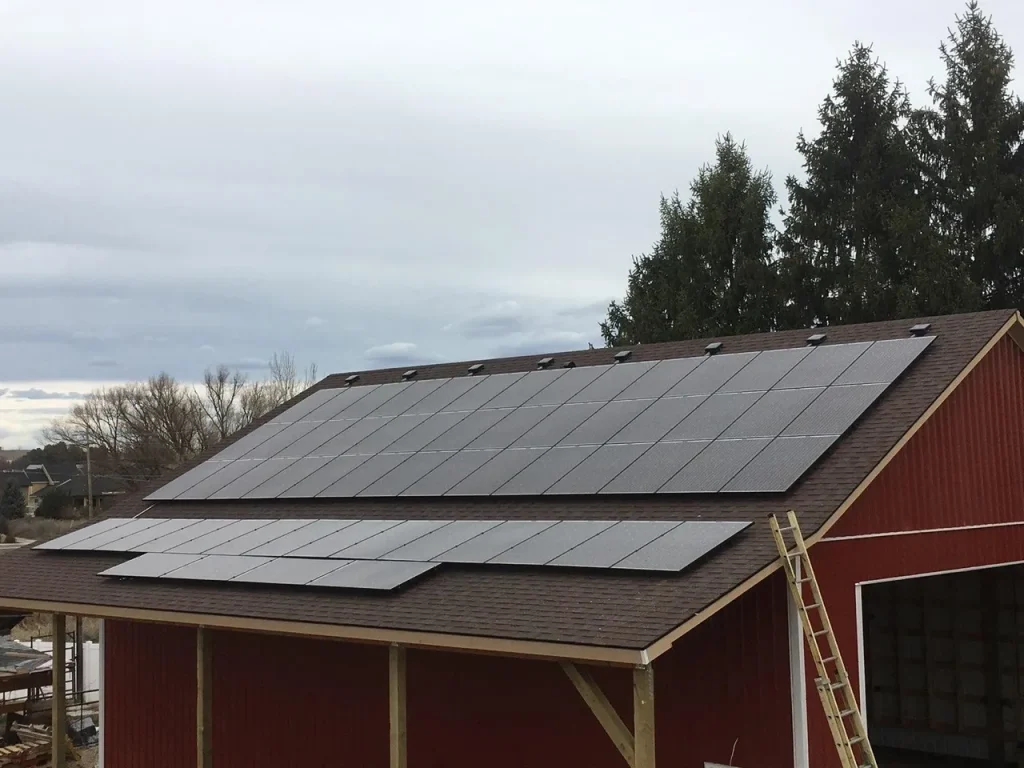
Now, to assess the financial viability, let’s compare traditional electricity costs with the potential savings from ‘free’ solar panels:
Traditional electricity costs in Idaho average around 10 cents per kilowatt-hour (kWh), which is lower than the national average.
With a PPA or lease, homeowners might get a rate around 2-3 cents less per kWh than they would from the utility company.
Substantial savings can be achieved if your home’s energy consumption is high and if solar panel productivity is strong, which in Idaho, with its good number of sunny days, is often the case. Yet, it’s imperative to consider the escalation rate included in many solar agreements, which can raise the cost per kWh over time, possibly diminishing savings as years go by.
- Initial Costs: Virtually nonexistent with ‘free’ solar, versus significant upfront investment if purchasing outright.
- Control and Maintenance: The solar company typically maintains the system at no extra cost to homeowners, whereas with purchased systems, the owner is responsible for maintenance.
- Long-term Outlook: Traditional electricity rates can fluctuate and generally increase, whereas with a PPA or lease, rates tend to be predictable and may increase at a predefined rate.
- Home Value: Owned solar systems have been shown to increase property value more significantly than leased systems.
In summary, while there are potential savings with ‘free’ solar panels, it’s crucial for Idaho homeowners to read the fine print, understand the terms of the agreement, and weigh in on potential escalations in PPA rates and their own energy needs over time. To get a personalized estimate of savings, consider reaching out to a local solar energy consultant who can provide a tailored cost-benefit analysis for your specific situation.
The Hidden Costs of “Free” Solar Panels
When considering a ‘free’ solar panel offer in Idaho, it is essential to understand that while the initial installation might not require an out-of-pocket expense, there could very well be hidden or unexpected costs that surface over time. Here’s what to look carefully at:
- Long-term Contracts: Some free solar panel deals hinge on entering a Power Purchase Agreement (PPA) or solar lease. While these agreements might eliminate upfront costs, homeowners are typically locked into long-term contracts with monthly payments that might escalate over time.
- Maintenance and Repairs: Although maintenance might be included in some agreements, it may not cover all types of repairs. Ensure you understand what maintenance responsibilities will be your financial responsibility, such as inverter replacement or panel cleaning.
- Insurance: Homeowners are often required to insure the solar panel system, which could mean an increase in your home insurance premiums.
- Performance Expectations: Remember that the projected energy savings over time are based on estimates. Actual performance can vary due to location, climate, or unexpected shading from new construction or tree growth.
As far as long-term financial implications go, while you could benefit from a predictable electricity rate and potential savings on your energy bill, it’s important to weigh this against the total cost of the contract over time. And if you ever decide to sell your home, the presence of a solar PPA or lease could affect the sale—some buyers might be hesitant to take over the solar agreement.
To be genuinely informed, always read the fine print, compare the total costs with potential savings meticulously, and consider consulting a financial advisor or a solar energy expert. Getting professional advice will help ensure that the solar panel offer aligns with your financial goals and doesn’t lead to unwelcome surprises down the road.
Idaho Solar Incentives, Tax Credits, and Rebates to Reduce the Upfront Cost
In Idaho, solar incentives, tax credits, and rebates are financial benefits offered to homeowners to lower the upfront costs of installing solar panels and encourage the adoption of clean energy. By taking advantage of these programs, homeowners can significantly reduce the purchase and installation costs of solar systems and receive ongoing benefits that make solar energy more affordable and cost-effective over time.
Here is a table outlining the key solar incentives available in Idaho:
| Incentive | Savings | Explanation | Type | Occurrence |
|---|---|---|---|---|
| Federal Solar Investment Tax Credit (ITC) | 26% (2022 rate) | Homeowners can deduct a percentage of the cost of installing a solar energy system from their federal taxes. | Tax Credit | One-time (the year the system is installed) |
| Idaho Residential Alternative Energy Tax Deduction | Varies | State-level tax deduction for 40% of the cost in the first year and 20% each year thereafter for three years, up to $5,000 per year and $20,000 total. | Tax Deduction | Over four years |
| Property Tax Exemption for Solar Installations | 100% exemption | The added home value from solar system installation is exempt from property taxes for the first year after installation. | Tax Exemption | One-time (the year after the system is installed) |
| Net Metering | Varies | Customers are credited on their utility bill for excess energy their solar panels produce and return to the grid. | Utility Billing Policy | Ongoing |
| Local Utility Rebates | Varies | Some local utilities offer rebates for installing solar PV systems, such as Idaho Power’s Solar 4R Schools program. | Rebate Program | Limited time and availability |
Note: The specifics of these programs, particularly the local utility rebates and net metering policies, can vary. It’s important for residents to check with their local utility providers and stay updated with the current policies and incentives. The Federal Solar Investment Tax Credit is subject to change based on federal energy policies.
How to Choose The Best Solar Company in Idaho
Embarking on a journey to harness solar energy for your home is a commendable move towards sustainability and can also be financially rewarding. However, the success of your solar energy project in Idaho largely hinges on the solar installer you choose. Here are tailored considerations to guide you through this important decision:
- Installer Experience and Local Expertise: Look for an installer with a strong track record in Idaho. A company with extensive experience in your region will be well-acquainted with local weather patterns, which can affect solar panel efficiency, and the nuances of Idaho’s building codes and permit processes.
- Certifications and Licenses: Ensure the installer holds all necessary certifications, such as the North American Board of Certified Energy Practitioners (NABCEP) certification, and state licenses. These credentials signify a company’s proficiency and professionalism in the solar industry.
- Customer Reviews and Reputation: Research the installer’s reputation by reading customer reviews and testimonials. A good solar installer will have a track record of satisfied customers and positive feedback.
- Warranty Offerings: A quality installer will offer robust warranties for their work and the solar equipment. These warranties can range from 10-25 years, providing peace of mind and protection for your investment.
- Service Offerings: Some installers might offer additional services such as free energy audits, system monitoring, and regular maintenance. These extra services can ensure that your solar system functions optimally.
- Post-Installation Support: A reliable installer will provide clear guidance on the operation and maintenance of your solar system, as well as support you with any service or performance issues that may arise after installation.
- Financial Incentives and Expertise: Look for an installer knowledgeable about the federal solar investment tax credit and any state or local incentives in Idaho. They should help you navigate the options to optimize your savings.
By minding these factors, you’ll be equipped to select a solar installer that not only provides a smooth transition to clean energy but also ensures a positive impact on your home’s value and your wallet. Opting for the right professional assistance maximizes the benefits of your investment in the long-term, as Idaho’s sunny climate offers plentiful opportunities for solar energy production. Remember to ask lots of questions and choose a partner that aligns with your energy goals and values.
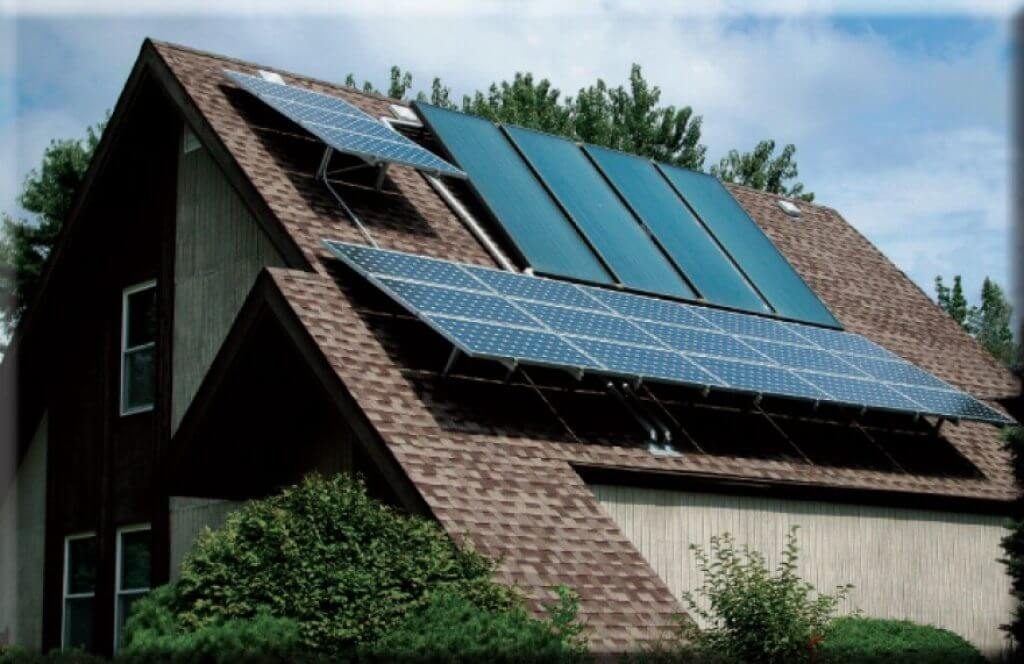
Important Solar Installation Factors to Consider in Idaho
When planning to install solar panels in Idaho, there are several important factors you should take into account to ensure your investment is sound and the installation process goes smoothly.
First, consider Idaho’s climate conditions. Idaho experiences a mix of weather patterns, with relatively sunny summers and potentially harsh winters. Good solar panel efficiency relies on adequate sunlight, so you’ll need to assess your site’s solar exposure throughout the year. In areas that receive significant snowfall, you need to ensure the panels are installed at an angle that helps snow slide off and equipped with the durability to withstand the weight of snow accumulation.
Idaho’s state regulations and incentives can significantly impact your solar installation. Investigate the following:
- Local Permitting: Check with your local government to understand the permitting process for solar installations, which can vary from one municipality to another.
- Net Metering: Idaho offers net metering, allowing you to offset the cost of power drawn from the utility with the energy your system generates, so understanding how this will benefit you financially is key.
- State Incentives: Look into state and utility incentives, as well as federal tax credits, to reduce the upfront cost of your solar panel system.
Lastly, it’s crucial to conduct a property assessment before installation. This will involve analyzing factors such as:
- Roof Condition: Ensure your roof is in good condition, structurally sound, and has a sufficient lifespan remaining to support solar panels without needing replacement soon after installation.
- Orientation and Shading: The direction your roof faces and the amount of shading it receives can affect the efficiency of your panels. South-facing roofs with little to no shade are typically ideal for maximizing solar energy production.
- Energy Consumption: Gauge your household’s energy consumption to determine the size and number of panels needed to meet your energy goals.
Navigating these factors can be complex, but they are essential for a successful solar panel installation. Consulting with a local solar installer or an energy advisor can provide personalized advice, ensuring that you make the most out of your solar investment in Idaho.
Final Recap
When it comes to ‘free’ solar panels in Idaho, it’s essential to approach the offer with a clear understanding of what it truly entails. The term ‘free’ often refers to solar lease or power purchase agreements (PPAs) where you don’t pay upfront for the installation of the solar system. Instead, you agree to buy the power it generates, usually at a reduced rate compared to your utility company.
Here are the benefits and considerations for Idaho homeowners:
- Reduced Energy Bills: Homeowners can experience immediate savings on their electricity bills, as the solar energy generated often costs less than traditional utility power.
- Low Upfront Costs: With no initial investment required for the panels, the barrier to entry for switching to solar energy is substantially lowered.
- Maintenance: Maintenance and repairs are typically the responsibility of the company that owns the solar system, relieving homeowners of potential additional costs and responsibilities.
However, consider these important factors:
- Long-term Agreement: Solar leases and PPAs usually involve long-term contracts, often lasting 20-25 years. It’s vital to understand the terms, as breaking the contract can be costly.
- Selling Your Home: If you decide to sell your home, the lease or PPA could complicate the process, requiring you to buy out the contract or transfer it to the new homeowner.
- Lost Incentives: By not owning the solar panels, you may forfeit certain benefits like federal tax credits, state incentives, and the opportunity to increase your home’s value.
- Fixed Rate Escalation: Some agreements have a fixed rate escalation, meaning the cost of electricity you buy from the system could increase annually, affecting long-term savings.
It’s crucial for homeowners in Idaho to conduct due diligence and weigh the benefits against the realities. Make sure to read any contracts thoroughly, possibly consulting a lawyer or a solar energy advisor, and compare the offerings with purchasing your own solar system where you can reap all the benefits directly.

